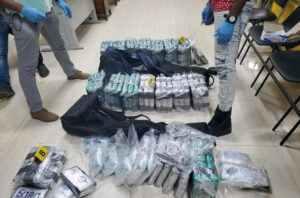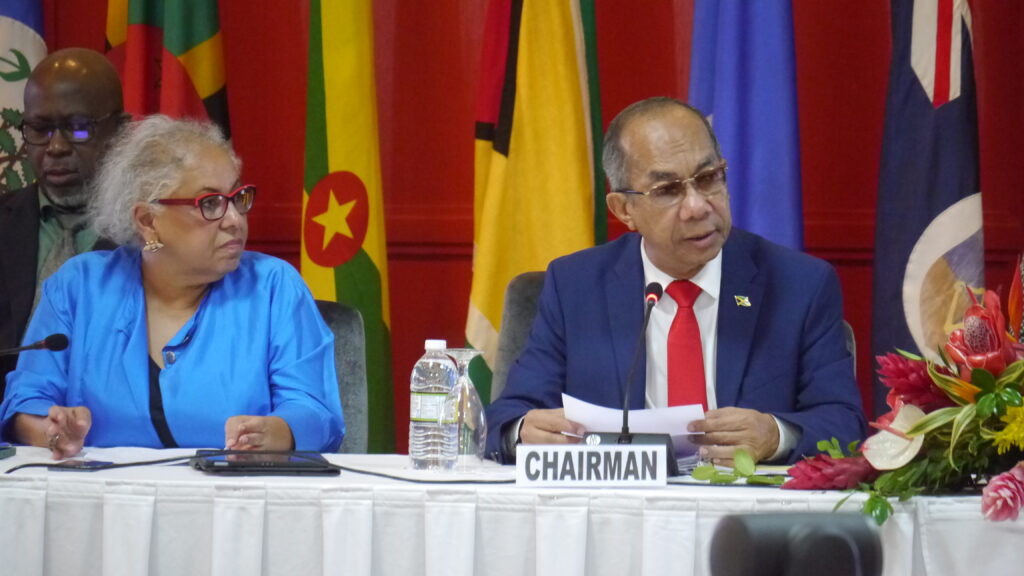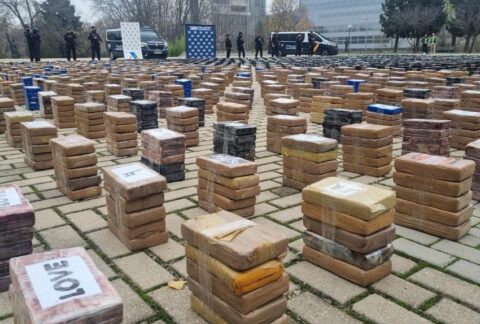Caribbean countries are set to increase security in the region as criminal organizations resort to new methods to smuggle drugs and weapons. Regional countries are also calling on international alliances with security and anti-drug agencies for support, with the United States playing a key role.
On October 26, U.S. Customs and Border Protection (CBP) intercepted 2.9 tons of cocaine in the Caribbean Sea, news site Loop Caribbean reported. In late September, 19 countries participated in Operation Trigger VII, a week-long joint operation between INTERPOL and the Caribbean Community (CARICOM) Implementation Agency for Crime and Security (IMPACS), which led to the seizure of 10.1 tons of cocaine, 2.5 tons of cannabis, 350 weapons, thousands of rounds of ammunition, and 510 arrests, INTERPOL indicated in a statement.
Faced with this recurrence of crime, Caribbean countries are taking decisive actions to confront criminal organizations.

On October 6, for instance, CARICOM carried out its 24th Ministerial Council on National Security and Law Enforcement (CONSLE), in Trelawny, Jamaica, focusing on drug and arms smuggling and on combating organized crime. During the meeting, participants reviewed critical issues to ensure the viability and sustainability of the CARICOM IMPACS, the nerve center of the region’s multilateral crime and security management architecture, in the face of a changing security environment, CARICOM said in a statement.
“We are working on a number of initiatives that will enhance coordination with national, regional, and international actors,” Tonya Ayow, director of CARICOM IMPACS, told Diálogo on November 5. “For example, INTERPOL recently opened its Caribbean Liaison Office in Barbados, which shares its location with IMPACS offices. As a result, there is greater coordination and leveraging of regional and global systems.”
Ministers, police commissioners, and other security officials stressed in their interventions the urgency of addressing the threats of transatlantic criminal organizations, the transshipment of firearms and narcotics, maritime security, and cybercrime. In addition, they emphasized the importance of intelligence sharing, aligning national and regional security priorities, and building partnerships and capacity among law enforcement agencies.
“We also work closely with the Bureau of Alcohol, Tobacco, Firearms and Explosives [ATF]; Homeland Security Investigations; CBP; and member-states to strengthen our region’s response and combat illicit firearms trafficking,” Ayow said.
“The fact that we were able to focus especially on firearms trafficking at this meeting was of great value,” said Jamaican Deputy Prime Minister and Minister of National Security Dr. Horace Chang, who chaired the CONSLE meeting. “We can say we have entered a new era of cooperation in seeking to deal with a common threat to the Caribbean.”
The latter is something that is already happening, primarily through the Implementation Agency for CARICOM IMPACS, whose mandate is to implement actions designed to ensure that the regional anti-crime and security agenda objectives agreed upon at the meeting are met.
“Another excellent example of cooperation is through the support of the U.S. Bureau of International Narcotics and Law Enforcement Affairs for the implementation of a maritime domain awareness platform,” Ayow said. “This allows the IMPACS Joint Regional Communications Center and Regional Intelligence Fusion Center to better support member-states with enhanced information and intelligence capabilities, so they know who is in their maritime space.”
“The relationship we have with our Caribbean partners is absolutely vital to us,” U.S. Secretary of State Antony J. Blinken said in late September during his meeting with CARICOM Chairman and Suriname President Chandrikapersad Santokhi in Washington, D.C., Caribbean National Weekly reported. “It’s valuable. It’s critical, and I think that was underscored at the Summit of the Americas with the historic meeting that we had with CARICOM, with [U.S.] President [Joe] Biden and Vice President [Kamala] Harris. But not just the meeting, the work that is flowing out of that meeting to address these shared concerns of so many of our people.”
“Both the European Union and the United States provide significant support for enhanced border security initiatives,” Ayow concluded. “This will not only be in the best interest of the region, but also our partners, as we work together to keep threats offshore as much as possible, both for Caribbean countries and partners.”









